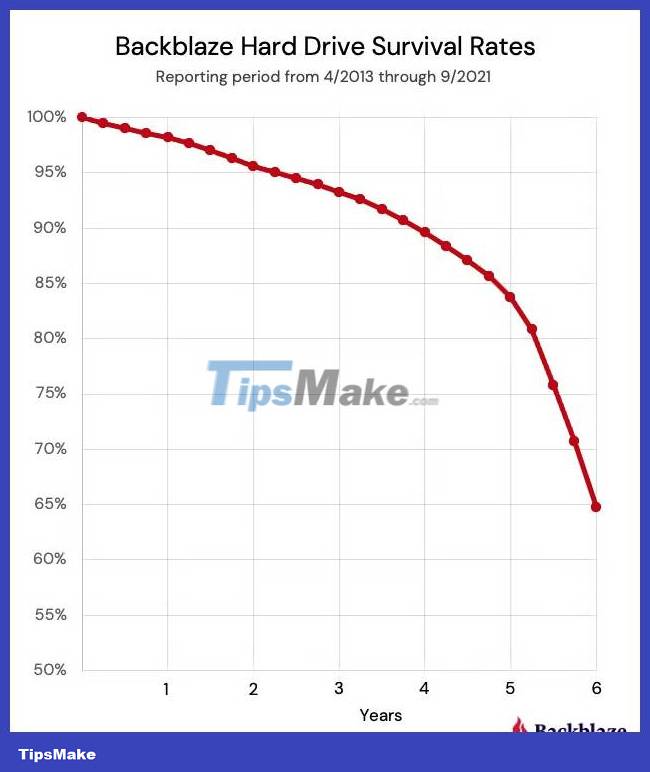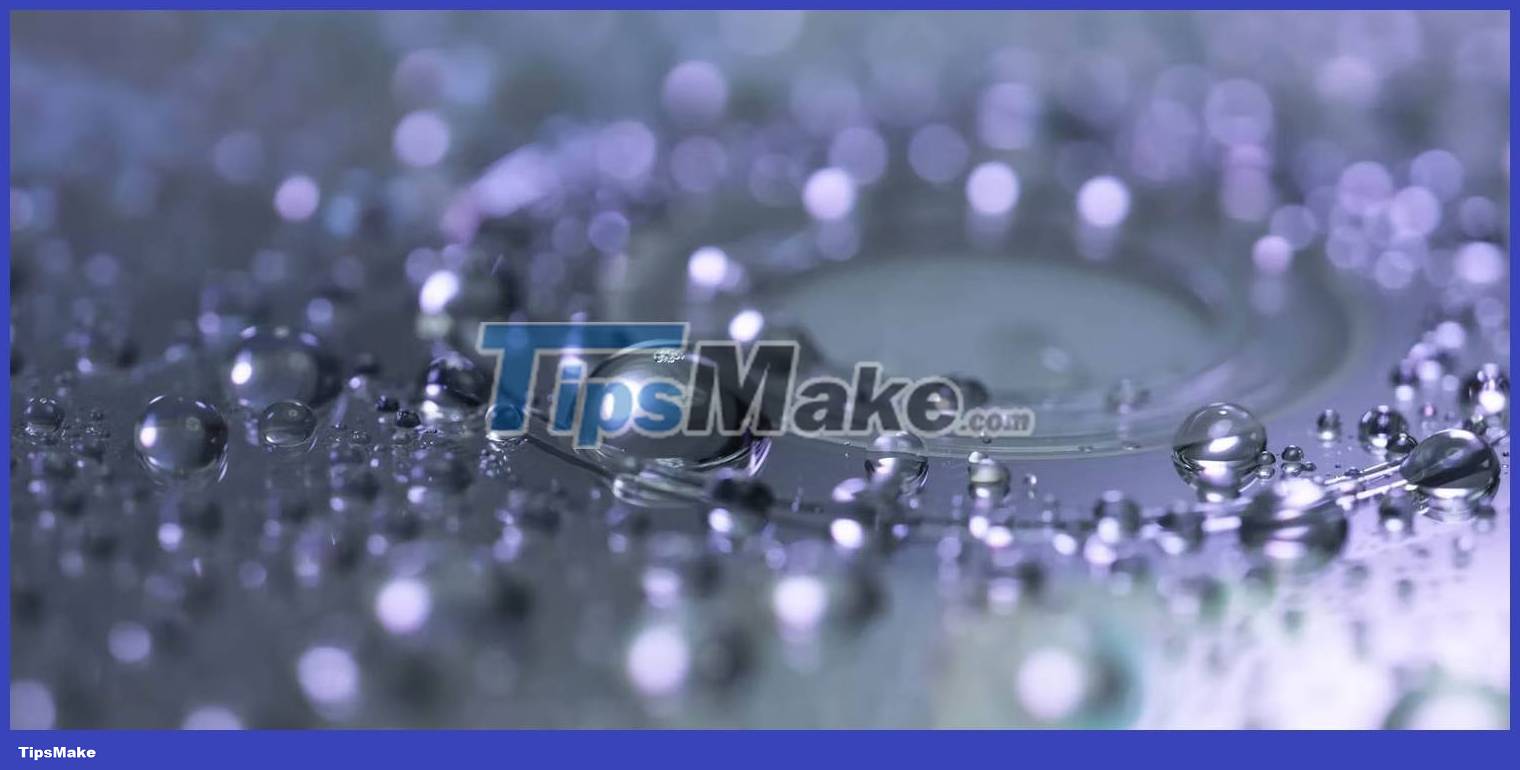7 simple ways to increase the life of your external hard drive
If you've ever experienced a hard drive failure, you know it's not a pleasant feeling. We trust our drives to hold our most precious data and files, so it's important to keep them running and lasting as long as possible.
There's no way to prevent a hard drive from failing, but there are a few things you can do to prolong the life of your hard drive.
What is the typical lifespan of an external hard drive?
It's hard to determine how long a hard drive will last. Some drives actually last a very long time; Others may stop working within a few years. Cloud storage company Backblaze discovered how difficult this can be when they did a study on the lifespan of drives.
Their initial study in 2013, which included 25,000 drives, was mass updated in 2021 to include data from more than 200,000 drives. However, even after all that research, the folks at Backblaze still find it hard to give an exact timeframe for how long the hard drive will run.

However, judging by the data, maybe 4 to 6 years is the lowest life of the hard drive. However, the drives in the study were mounted to a storage server, meaning they were used very differently from how you would use an external hard drive. It seems unfair to use the results of the Backblaze study to draw conclusions about the lifespan of drives that end users use every day.
7 ways to increase the life of an external hard drive
There are several ways you can handle and use your external hard drive to make it last longer. However, there is no substitute for backing up your important data on an external hard drive, as any hard drive can fail. Furthermore, if you are looking to buy an external hard drive, there are a few things you should know when buying a backup drive.
1. Don't plug in continuously
The best thing you can do to prolong the life of your external hard drive is to not use it as often. Disconnect and unplug the external hard drive when not in use. One way to achieve this is to use an external hard drive as a backup drive.

Whenever you need to access files, plug in the drive and copy the files to your PC's main hard drive. (This works best for media files and may not be practical for work files.) Doing this means your external hard drive has less power to run through, helping it last longer.
You have other options for backing up your data if you don't like using an external hard drive this way. And, if you want to clone your entire hard drive, you'll need drive cloning software.
2. Don't let the drive get too hot
When a drive is spinning, it generates heat. Heat damages electronic components. Running at high temperatures for long periods of time can severely reduce the life of your drive by causing permanent damage to its components. If you notice your drive is overheating while in use, disconnect it and let it cool down before using it again.
3. Store external hard drives properly
Humidity and electronics are "unlikely". It is not easy to recover data from a failed drive. One mistake many people make has to do with where and how they store their hard drives when not in use. Humidity can affect the performance of the drive, so it is best to store the external hard drive in a cool, well-ventilated place.
4. Don't run it in extreme conditions
The article covered how heat and humidity can damage a running drive. It's best not to use an external hard drive in very hot and humid conditions. If the air is very humid or the weather is too hot, run the external hard drive for a short time or pause it during that time.

5. Keep the drive dust-free
Dust can be a killer for hard drives because it can get into the drive mechanism, cause damage, and lead to failure. Make sure the room in which you use the external hard drive is dust-free, or at least as dust-free as possible.
6. Handle with care
When you're using an external hard drive, make sure you're not being rough with it. Dropping the hard drive can damage the internal mechanisms and render the drive inoperable. Be gentle when handling an external hard drive to get the most out of it for as long as possible.
7. Don't carry the drive everywhere
It's best to store your external hard drive on a shelf, not in a backpack. Rolling around in the bag while you walk or drive can cause damage to the moving parts in the drive. This will make the hard drive have a shorter lifespan.
You should read it
- ★ How to fix an external hard drive error is not displayed on the Mac
- ★ Everything you need to know about external hard drives Xbox One
- ★ Causes and ways to fix external hard drive slow on Windows 10
- ★ How to increase the life and durability of hard drives
- ★ How to reformat an external hard drive does not cause data loss